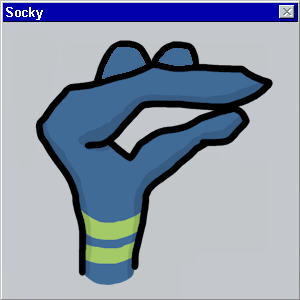Buying a new Mountain Bike
August 10, 2009 8:57 AM Subscribe
[bikefilter] I'm buying a new mountain bike in the near future. Possible candidates are the Santa Cruz Blur LT, Yeti 575 and the Ibis Mojo. Other bikes have the same features and can be had for almost $1k less. Are these bikes worth the difference in price to other less costly bikes? Will I be buying brand?
Sadly I can't test ride any of these bikes. Where I live the shops mostly sell Specialized bikes.
I don't care much about brand, my interest in said bikes is because people seem to love them and they fit my riding style.
My current ride is a '98 Specialized FSR, so anything that currently sells has the potential of being significantly better/lighter.
Sadly I can't test ride any of these bikes. Where I live the shops mostly sell Specialized bikes.
I don't care much about brand, my interest in said bikes is because people seem to love them and they fit my riding style.
My current ride is a '98 Specialized FSR, so anything that currently sells has the potential of being significantly better/lighter.
Best answer: Seconding never buying a bike you have never ridden. And that means the exact model. There can be big ride differences between models from the same manufacturer. I know...Unless you live in a big bike mecca, that rule sucks, but it can save you from a lot of buyer's remorse, too.
posted by Thorzdad at 9:22 AM on August 10, 2009
posted by Thorzdad at 9:22 AM on August 10, 2009
You *have* to ride them first. The sizing isn't standardized between brands and there are a lot of angles and tube lengths to consider for proper fit. The biggest reason people don't like their bikes is that they don't fit right.
There are three things that make up the price of the bike: The quality of the frame, the quality of the components, and the shop you buy it from.
The component sets on mountian bikes usually come from SRAM or shimano. The fork and rear shocks from Fox or other brands. Other bits from Bontrager or Crank Brothers.
"Same features for $1000 less" can mean a lot of different things. Features like "Disc Brakes" can be mechanical or hydraulic (Add $100), and both kinds have a couple different price levels.
I'd be wary of a bike that costs $1000 less and has the same features - there was a shortcut taken somewhere.
posted by bensherman at 9:25 AM on August 10, 2009
There are three things that make up the price of the bike: The quality of the frame, the quality of the components, and the shop you buy it from.
The component sets on mountian bikes usually come from SRAM or shimano. The fork and rear shocks from Fox or other brands. Other bits from Bontrager or Crank Brothers.
"Same features for $1000 less" can mean a lot of different things. Features like "Disc Brakes" can be mechanical or hydraulic (Add $100), and both kinds have a couple different price levels.
I'd be wary of a bike that costs $1000 less and has the same features - there was a shortcut taken somewhere.
posted by bensherman at 9:25 AM on August 10, 2009
Best answer: I'm a road bike guy and when comparing brands there simply isn't the range in price you see for MTB when you're going components to components. This is because at the mid-level range frame specs are nearly identical. It really comes down to getting the best component group for the price.
This doesn't apply as well to MTBs where advanced engineering in the frame and geometry can vary greatly among manufacturers.
Will you notice a difference between the $1,000 and the $2,000 MTB? It really depends on how advanced a rider you are.
Test ride, test ride, test ride.
posted by wfrgms at 9:26 AM on August 10, 2009
This doesn't apply as well to MTBs where advanced engineering in the frame and geometry can vary greatly among manufacturers.
Will you notice a difference between the $1,000 and the $2,000 MTB? It really depends on how advanced a rider you are.
Test ride, test ride, test ride.
posted by wfrgms at 9:26 AM on August 10, 2009
According to Mr. Go Banana, the premium is likely because the frames you mention are built in the U.S. He also says that you'd probably be satisfied with any of the three (he considered the Ibis but just bought an Ellsworth--which he is deliriously happy with). I'm presuming you're just buying the frame and building it? As I understand, fit is highly customizable depending on how you build, so the test ride wouldn't be as important (as long as you bought the right size frame).
posted by Go Banana at 9:47 AM on August 10, 2009
posted by Go Banana at 9:47 AM on August 10, 2009
Best answer: Nthing that the differentiator is the price of the bare frame. Frame pricing can get a bit nutty, especially when you get into the realm of handmade, or manufactured in a first world country. Sometimes you can find a $200 frame that rides better (for you) than the $3000 frame you thought you really wanted.
This is a big enough investment to seriously consider visiting a town with the right bike shops for a weekend, because you are pretty sure to save much more than the travel cost by test riding before you buy.
posted by idiopath at 10:34 AM on August 10, 2009
This is a big enough investment to seriously consider visiting a town with the right bike shops for a weekend, because you are pretty sure to save much more than the travel cost by test riding before you buy.
posted by idiopath at 10:34 AM on August 10, 2009
Also, remember that the high end brands stand behind their bikes. Santa Cruz is great to deal with, even for crash damaged frames. Test ride the bikes, and buy the one that feels right.
posted by tumble at 10:37 AM on August 10, 2009
posted by tumble at 10:37 AM on August 10, 2009
Also, consider buying from a brick and mortar bike shop, some bike shops will include a fitting with the purchase price of the bike, letting you test and swap out frame sizes / stems / seat posts / crank arms / etc. until you have things set up ideally for your body and riding style. Having this done properly is cheaper, and will make a bigger difference, than getting a top notch frame without the right fit.
posted by idiopath at 10:38 AM on August 10, 2009
posted by idiopath at 10:38 AM on August 10, 2009
from the bikeshop-working boyfriend:
there are demo bike programs. The bikes you are looking at are all
high end manufactures.
http://www.competitivecyclist.com/mountain-bikes/demo-bike
the bikes you are looking at are not on the list but turner is DW
link, and Intense uses VPP.
If you know your fit on your bicycle setting up a bike or buying a
bike you have never ridden can be done.
All of the bikes you mentioned are a departure from the '98 FSR. All
are longer travel and I believe have slacker head angles. This will
result in a bike that likes to go down hill but may acted sluggish at
low speeds. Given that, the Ibis is the bike I lust after.
posted by sciencegeek at 10:56 AM on August 10, 2009
there are demo bike programs. The bikes you are looking at are all
high end manufactures.
http://www.competitivecyclist.com/mountain-bikes/demo-bike
the bikes you are looking at are not on the list but turner is DW
link, and Intense uses VPP.
If you know your fit on your bicycle setting up a bike or buying a
bike you have never ridden can be done.
All of the bikes you mentioned are a departure from the '98 FSR. All
are longer travel and I believe have slacker head angles. This will
result in a bike that likes to go down hill but may acted sluggish at
low speeds. Given that, the Ibis is the bike I lust after.
posted by sciencegeek at 10:56 AM on August 10, 2009
Response by poster: There is a Specialized Demo Tour near my location. I will try to test first the new models from Specialized. If I don't find anything from them that I like I will plan a trip to a city that has more bikes to offer.
All your answers were very helpful.
posted by edmz at 3:56 PM on August 10, 2009
All your answers were very helpful.
posted by edmz at 3:56 PM on August 10, 2009
This thread is closed to new comments.


1. Never buy a bike without riding it first.
2. Fast, light , cheap, durable: pick 2.
I've ridden a lower level Santa Cruz and likes it, but I don't know about the Blur LT. That being said, there is no substitute for getting on the bike and taking it for a spin.
posted by nestor_makhno at 9:03 AM on August 10, 2009